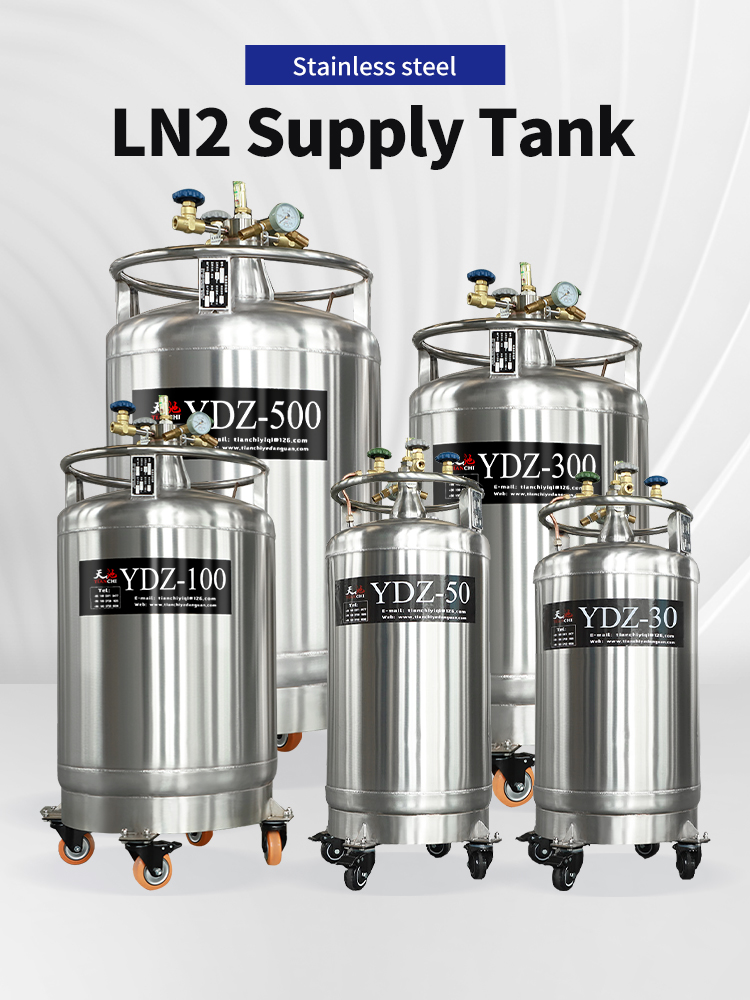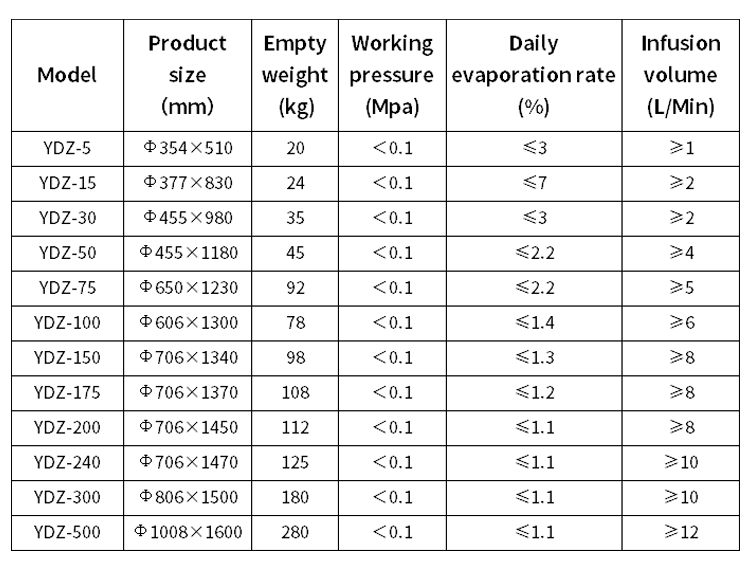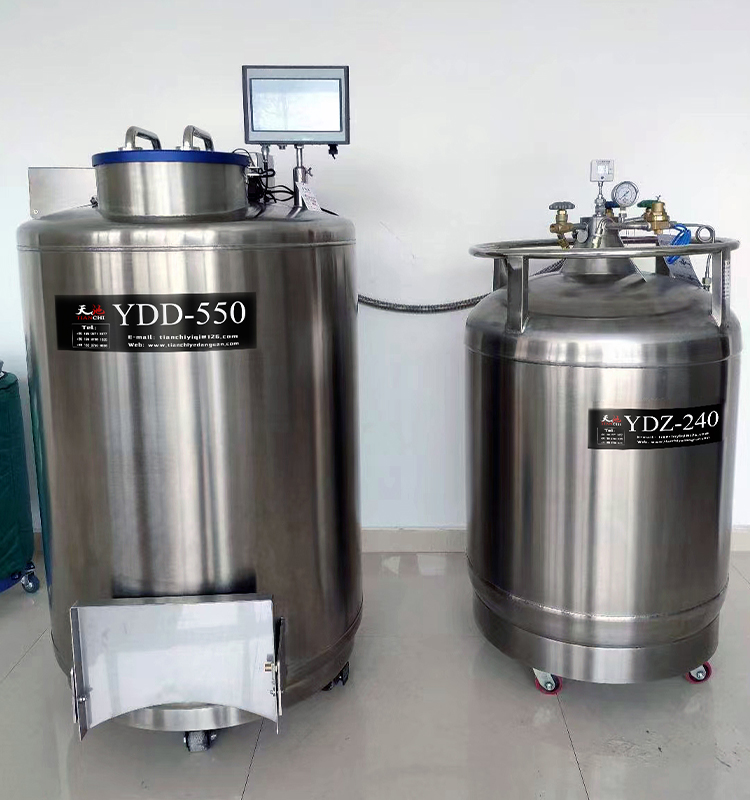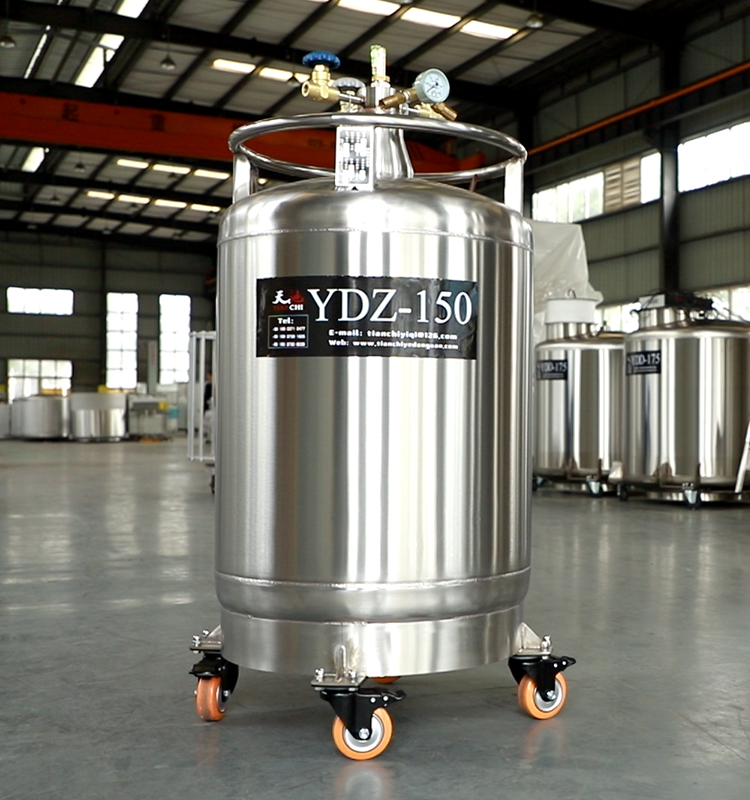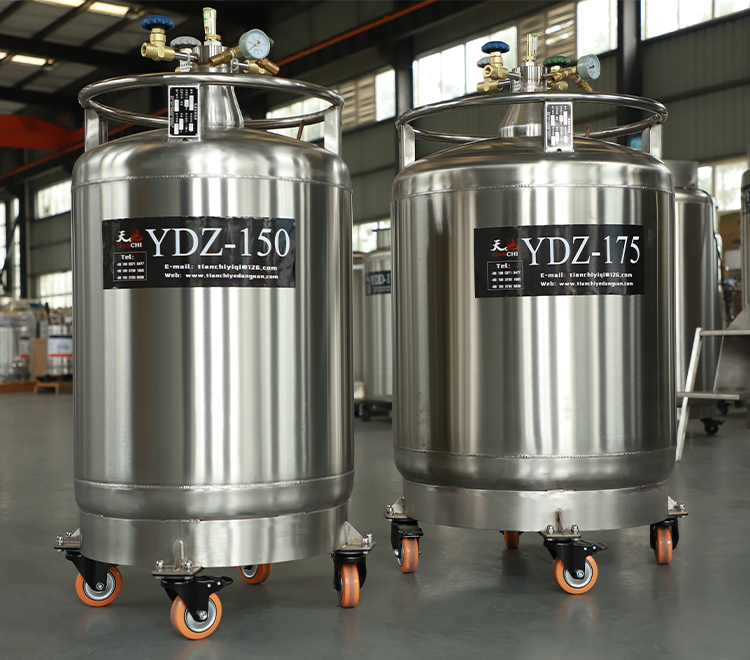A self-pressurizing liquid nitrogen tank increases the pressure inside the tank through vaporization of liquid nitrogen. When it reaches a certain pressure value, liquid nitrogen can be continuously discharged.
Some users of self-pressurizing liquid nitrogen tanks find that the tank cannot discharge liquid nitrogen after using it for a period of time. After self-inspection, they find that the tank is intact. So what is the reason why the tank cannot discharge liquid nitrogen?
Reason 1: There is no liquid nitrogen in the tank
There is no liquid nitrogen in the tank, so of course it cannot be discharged.
The self-pressurizing liquid nitrogen tank itself relies on the vaporization of a small amount of liquid nitrogen to achieve pressurization. Without liquid nitrogen, pressure cannot be generated!
Moreover, self-pressurizing liquid nitrogen tanks and liquid nitrogen storage tanks are the same. Even if the tank is filled with liquid nitrogen and left unused, it will naturally evaporate.
Therefore, when you find that the self-pressurizing liquid nitrogen tank cannot drain, you must first check whether the liquid nitrogen in the tank has been used up, and replenish it in time.
If you only focus on the inability to drain the liquid and do not pay attention to the remaining amount of liquid nitrogen in the tank, this problem will occur a second time.
Reason two: ice blockage phenomenon
This situation usually occurs at the booster pipe, and sometimes at the drain pipe. This is because the moisture in the air enters the container and is not fully eliminated. When it comes into contact with low temperatures, it will freeze and block the container. Pipes naturally cannot drain fluid.
If you have any needs, please contact KGSQ liquid nitrogen tank:
Email: tcln2container@126.com
WhatsApp: +86 18903712477
Official website:
https://www.cryogenicstoragetank.com/YDZ-Series-Liquid-Nitrogen-Supply-Tank.html
